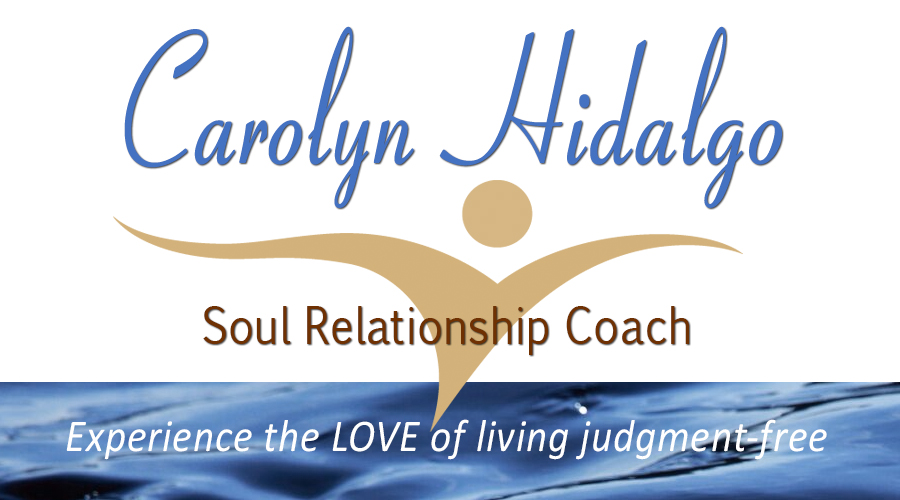I get asked to clarify this question a lot: when am I being selfish as opposed to simply choosing what I want?
Does it feel like you are chasing after the things you want?
Do you find yourself trying to control, pushing hard to get somewhere, or expecting others to make you happy?
When you shift from what it is to be selfish over to self-love, life begins to move in the direction you want more effortlessly. It doesn’t mean effort isn’t involved, but this kind of ‘hard work’ feels easier.
I believe the root of our ‘internal pains’ – feelings of guilt, resentment, conflict, stress, betrayal, depression or worry over being selfish – ultimately stems from a self-love that is being suppressed.
What could you create in your life if you let go of “what will someone think of me if I choose this path?” This is the beginning of trusting your own self-love. It doesn’t mean you don’t keep questioning your choices, but you are committed to what brings you meaning, joy, and purpose.
Self-love raises your level of self-worth to give you the courage to GO FOR IT – no matter what. To speak your mind where it’s healthy, and wise to do so, and follow your heart because deep down you can trust you.
Harv Eker’s Words
What do you want? There’s this crazy idea that you cannot ‘have your cake and eat it too’. I still remember Harv Eker‘s words at a conference long ago yelling at the top of his lungs: “What’s the point of having cake, if you can’t eat it? !!”
Inherent in any label of ‘selfishness’ is an assumption that in making choices you want, someone is being neglected, hurt, abandoned, used, taken advantage of, or victimized in the process. Someone is being ‘wronged’, so you may get judged as selfish. But is it true?
Let’s face it, we’ve all met people who have no problem stepping on others for their own benefit. Some people sadly hold little regard for the genuine feelings of others. They seem to revel in gossip, and putting others down is simply expressing their opinion. There’s a connection missing they don’t realize isn’t there.
Greed, self-importance, entitlement, and judgment are justified. Apologizing is extremely difficult as pride overrules. Appearing weak where God forbid you may be wrong won’t surface in their words.
They know it all, and there is no space to listen to you. They fail to see beyond the world they’ve created even in the face of people continually stepping away from their path.
Not surprisingly, those who behave selfishly do not think of themselves as selfish, which is why they keep repeating the same self-destructive patterns – they’re ok with it!
They can sacrifice, alienate, and walk over friends, colleagues, relatives, even the well-being of their own children to be right. You may be bewildered, angry, or frustrated trying to understand their choices.
Let it go, and focus on understanding your choices. You get to BE YOU.
If you dig deeper – we all choose to do what we think is right for us. Who tries to be selfish? The difference is the intention from the place you live from, which is directly affected by the level of your own self-worth.
How to Determine If You’re Being Selfish
Do you recognize when you are behaving in a way that would be considered selfish? Here’s how you might be able to tell:
- Do you feel a sense of entitlement (like you are owed something)?
- Have you ever felt like people are betraying you?
- Are there many people regularly not meeting your expectations where you feel disappointed or appalled?
- Do you have feelings of jealousy, a need to control, or ownership?
- Do you have difficulty being happy for other people’s happiness?
- Is there a regular feeling of being pissed off or annoyed at the world, and how people behave?
- Do you get offended easily?
- Does life feel like an on-going competition where you need to be better than someone to ‘win’ or ‘survive’?
- Do you need to get your own way where others are having to give in or walk away to avoid your reaction?
The “all about me” at the expense of someone else comes at a price that is difficult to see when you are in it. There’s anger, pride, and self-pity that’s really blame in disguise, and becomes self-righteousness.
Thoughts of “it’s someone’s fault I feel this way” or “this happened to me because of someone” can keep you stuck in the ‘victim’ mentality.
What do you really want?
The hardest question: “What do you really want?” Not what you should want, or what makes sense, or pleases someone. Knowing yourself apart from everyone else’s ideals forces you to trust the deepest part of you that believes you deserve it. That knows you are already loved.
It’s here that you become “one with everyone” wanting the happiness not only yourself, but everyone else. Abundance lives in this space.
It’s also where you have the capability to take 100% responsibility for your own life without needing approval, validation or permission. Your values get created from a place of inner grounding that’s at peace, and you end up creating what you want from the inside out.
Are you stopping yourself from pursuing your own happiness out of fear someone will not like it, be hurt, or angry? Notice that anyone’s reaction is based on their values (who they are) – not yours.
If you choose to accommodate, adjust who you are to please someone else, or avoid conflict, you may lose yourself in the name of not ‘being selfish’. You don’t want to offend or disappoint someone or believe you are causing someone else’s pain, but are you?
Why would anyone who cares about you not want you to be happy doing the things that nurture you? For making choices that allow you to thrive, grow, and be your best?
Unless someone felt less worthy or inferior as a result. Unless there was perhaps some jealousy or need to control. Unless someone didn’t feel good enough. Unless what you are giving to yourself is what someone doesn’t believe they deserve – no one should have that! Suddenly you become selfish.
Are You Being Selfish?
The question is not whether you are ‘being selfish’ – it’s “am I choosing what works for me because I believe, and know myself?” When you honour what lights you up, you become an inspiration to others because you give permission for others to love and honour themselves.
You “become the change” and the idea of ‘selfishness’ disappears – existing only with those who don’t realize they are choosing a selfish path because there’s no space to share what can only be discovered on their own.
Where in your life might you be behaving selfishly?
Where might you be holding yourself back because of a fear of being perceived as selfish?
Are you willing to honour what you truly want by nurturing your own well-being so life starts coming to you?
Share in the comments : )




Thank you. That was fantastic. I love every word you say. Thanks…
Love that it resonated Frances : ) Thx for sharing!
I understand a good deal of the article; however, I am not sure I understand how sometimes feeling betrayed, appalled by others’ actions, or getting easily offended is selfish. Do you mean that it is kind of like wallowing in self-pity (the victim mentality?) What should be the alternative? Accepting people for who they are and letting things roll off our backs? Thanks.
Hi Mary,
Thx for asking! When we are in the space of feeling betrayed, offended, appalled by other people’s choices against us – we are sitting in our own ‘self-deception’ (selfish) of what’s right (someone is wrong) where we can start feeling self-pity/victim emotions, and cannot see someone else is just ‘being who they are’ from their ‘self-perception’ that’s right for them (even if its faulty for you).
The alternative is not necessarily letting it roll off your back meaning “it doesn’t matter” because it does (why we get upset in first place!), but when you realize other’s choices we have no control over, cannot change, and comes from a place we may never understand – that’s its not about you – this is simply others showing up as “who they are”. This realization allows you to shift away from the ‘selfish view’ over to a higher place that can make you stronger in whatever value was being stepped on. It reconnects you back to your authentic self.
“Acceptance” really means “being in your peace” within where we let go of that resistance caused when we are ‘selfish’ (see our way as right for someone else who may not be able or is not willing to accept your way as right for them – effectively our ‘selfishness’ makes them wrong) – this is what creates the angst, resentment, and unforgiveness.
You can accept someone is living from their own state of awareness (even when it differs from you) when you shift to a compassionate view (instead of a selfish view) -it doesn’t mean you accept their choices.
Everyone is doing their best, and although it can surprise us what people will choose, its the filter you need to show you who you are, what matters, and how to proceed with that connection.
Hope that helps : )